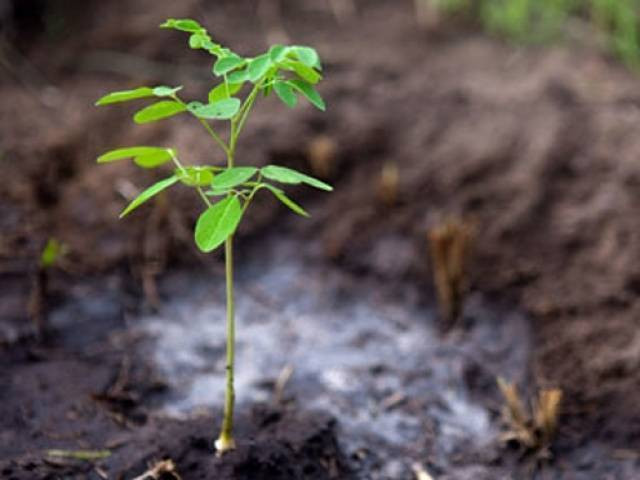Govt to launch Olive Tree plantation drive
PM’s climate change adviser says these weather-resistant plants will turn barren land into food baskets

PHOTO: FILE
This was disclosed by Prime Minister's Advisor on Climate Change Amin Aslam on Sunday after visiting olive growing areas in the Chakwal district.
Talking about the Olive Tree Tsunami programme, he said that the programme has been developed for regions hit by recurring water shortages, droughts and plunging groundwater levels.
He added that directives have been issued to forestry officials in the Climate Change Ministry for rolling out an over-arching and viable national plan of cultivating 50 million olive trees as a part of the 10 Billion Tree Tsunami Programme.
Climate change is taking its toll on Greek monuments, say scientists
The programme, Aslam said, will particularly target small, landholding farmers in the drought-hit areas of Punjab, Balochistan, Sindh, and Khyber-Pakhtunkhwa (K-P). Olive tree plantation at such a large scale will be boosted with the construction of rainwater harvesting storage ponds in drought-hit areas and use of efficient irrigation technologies and practices.
The prime minister's advisor added that rain-dependent regions such as the Potohar region can be turned into food baskets by promoting large-scale olive tree plantation, where the agriculture sector is struggling with frequent drought conditions, falling rainfalls and irrigation water shortages.
“Since olive is a drought-tolerant staple plant, efforts will be made to increase the olive farming area in the Potohar region's Chakwal, Attock, Jehlum and Rawalpindi districts as well as various others water-stressed districts of Balochistan and K-P, which suffer frequent drought conditions because of declining rainfalls," Aslam said.
Climate Change Ministry Joint Secretary and Acting Inspector General of Forest Suleman Warraich said that olive trees are known worldwide as really great plants that can withstand various negative effects of climate change.
"Olive farming, however, can be easily carried out in the country's areas that witness frequent droughts, frosts, heatwaves and warming-caused fire events. Because the olive trees grow well even with low water irrigation and are naturally capable to regenerate after being hit by frost, heat waves, fire incidents due to its marvellous regeneration capacity thanks to their dormant buds," Warraich stated.
The acting inspector general forest, who also leads the Prime Minister's 10 Billion Tree Programme, noted that Pakistan is witnessing frequent and intensifying droughts because of climate change-caused shifting and declining rainfall patterns for the last few years.Climate change imperils one in four natural heritage sites
As a result, he said that the country's agriculture sector has been suffering seriously in the shape of crop failures and falling crop yields particularly in the highly climate-sensitive drought-hit regions in almost all provinces.
"Being a drought-resistant crop, olive can withstand such impacts of the changing weather conditions, boost farmers' income and significantly reduce a huge burden of edible oil import bill of the country," Warraich told media.
Separately, while chairing a meeting at the Barani Agriculture Research Institute (BARI) in Chakwal, Aslam announced that given the abundant benefits of olive cultivation, a 50 million tree Olive Tsunami plan will be launched soon in olive-potential areas identified in Punjab, K-P and Balochistan with support from the provincial and federal agriculture and forest departments.
“This initiative will particularly aim for controlling soil erosion in parched lands, promoting soil conservation, increasing tree cover in drought-hit parts and most prominently boost production of olive on a local basis to offset local climate change impacts as well as reduce the burden of edible oil import bill on the national exchequer," he said.
Published in The Express Tribune, October 14th, 2019.



















COMMENTS
Comments are moderated and generally will be posted if they are on-topic and not abusive.
For more information, please see our Comments FAQ